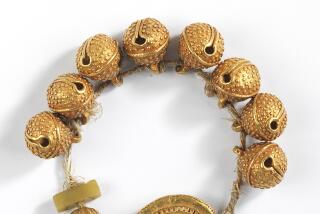Uganda Beckons, but Those Exiled Are Cautious : Africa: Some are invited to reclaim their property. But successful recovery has been mixed because of residents’ resistance and an ailing economy.
- Share via
KAMPALA, Uganda — On Sept. 21, 1972, Kiran Bhimjiyani fled with nothing but a suitcase, abandoning his sports car and a warehouse full of peppers and tea.
The import-exporter was among 70,000 Asians expelled by dictator Idi Amin so he could “Africanize” the economy. Most were of Indian descent, and many were citizens.
Now, Bhimjiyani and a few other Indians are returning, invited to reclaim their property by a government desperate to revive the shattered economy. Their success in recovering property has been mixed, and some have met resistance from black Ugandans.
Jim McCoy, an American adviser to the Departed Asians’ Property Custodian Board, said early this year that 2,700 claims had been received for about 7,000 Asian-owned businesses, and 1,740 properties had been returned. The other claims are being processed or have been rejected.
Among the recovered properties are sugar plantations, textile mills and breweries--large operations that President Yoweri Museveni hopes will spur the economy.
Only 500 to 1,000 of the Asians intend to live in Uganda. Many have settled into new lives in England, Canada and the United States. Others worry about Uganda’s history of instability.
They also encounter problems, however sincere the government’s invitation.
“There’s a lot of resentment from the local people,” Bhimjiyani said. “I will probably give it six months.”
He spoke of harassment by government bureaucracies and the reluctance of black Ugandan businessmen to buy goods from an Asian. Asians report some threats from black Ugandans who took over the abandoned properties.
Tenants of property returned to Asians face eviction or higher rents. Many simply do not pay, for lack of money, and there is little a landlord can do. Half of the non-payers are government offices and officials.
One such landlord in Suresh Ghelani, who works as an accountant in London. The government internal security department occupies two of his family’s houses.
“What is the point of saying, ‘Come back, take your properties,’ and at the end of that, all you have seen in two years is struggle?” he asked.
Amin’s declared purpose in establishing the Custodian Board was to care for the abandoned properties, but it soon became a symbol of corruption.
Museveni has shown resolve in cleaning up the board, which an unusually candid government report called a “conduit for distributing political favors.” Its progress in returning property was a condition for $130 million in credit from the World Bank.
Ghelani was an early beneficiary of the reforms. He first visited Uganda in 1991 and recovered his properties more than a year ago. In a slow, sad voice he told of his life in Uganda and the sense of loss.
“The way it was left, it was beautiful, absolutely perfect, a beautiful place,” said the accountant, who fled at age 18. “When we came back, it seemed to be in ruins.”
Kampala has indeed fallen on hard times. Red dust is everywhere, dead traffic lights tilt at crazy angles, sidewalks are broken, many buildings are pocked by gunfire and only 20% of the city has electricity.
The decline, accelerated by civil war, began with the expulsion of the Asians, who owned most of downtown Kampala. They were widely viewed as Uganda’s economic backbone, accounting for $1 billion in property and business. But they rarely mixed with the black Ugandans.
Bitterness lingers.
Ghelani says many of the Asians were citizens like himself, often the third generation within the country.
“My father was so much for Uganda that every penny he had, he invested in here,” Ghelani said. “There was nothing that he took out.
“The only worry that we had was, please, get out alive. Things were happening so fast. There were people who were killed. . . . People looted on their way to the airport.”
Those who left “were in their prime at the time,” said another who came back, Atul Radia. “Suddenly, they had to flee their country and became beggars.”
More to Read
Sign up for Essential California
The most important California stories and recommendations in your inbox every morning.
You may occasionally receive promotional content from the Los Angeles Times.













